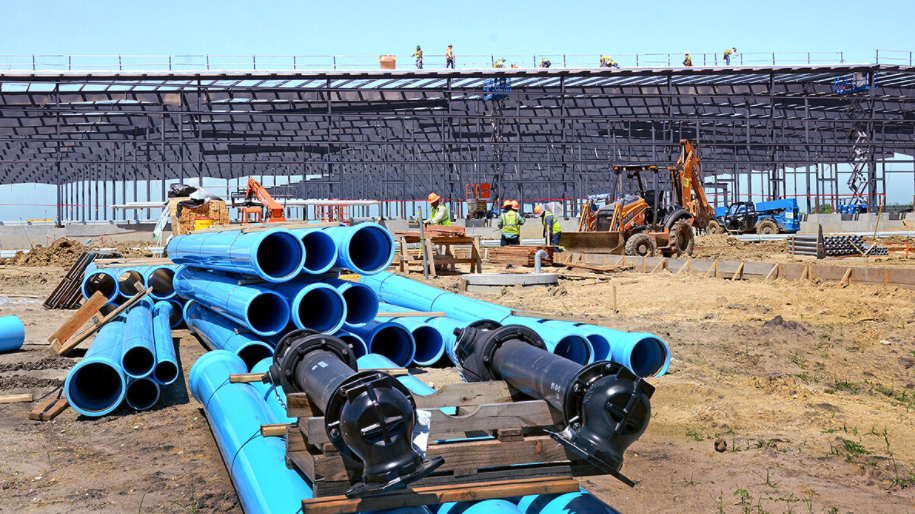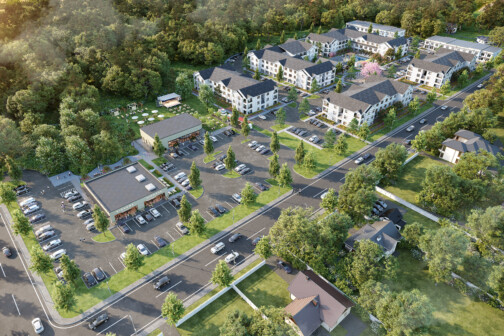We’ve heard it for years – the Dallas-Fort Worth industrial market is hot. However, with the COVID-19 pandemic driving supply and demand to new heights, it has left many of us thinking: What goes up must come down, right? I’m here to say not exactly. Last year alone, the Dallas-Fort Worth metro saw nearly 50 million square feet of industrial space under construction, and while things may be leveling off, the demand is still there. In fact, recently, I’ve received numerous calls from West Coast commercial developers who want to capitalize on the number one industrial market in the nation by drawing upon one of Texas’ greatest assets – its land.

Unlike other major markets, where available land is often restricted or supporting infrastructure is underdeveloped, North Texas uniquely allows industrial demand to move outward while still promising the same great qualities more urban sites provide. In our construction projects at Harrison, Walker and Harper, I’ve seen firsthand what outer-ring communities can offer, and now, with demand continuing to outpace supply, more and more developers are officially making the move. The result? A steady industrial market for the entire North Texas region today and into the immediate future.
It is important to note that DFW’s 365-degree development opportunities don’t just offer ample land to build industrial sites but also the existing infrastructure to actually make different industrial hubs throughout the region’s outer rings. With multiple rail lines, airports, and highways in place throughout North Texas, outlier cities are equipped with the necessary assets that can keep products moving and companies competitive. From suburban to exurban communities, DFW’s future-proofing mindset has brought accessibility to even more rural towns, getting companies closer to their consumers via all modes of transportation. Capitalizing on its ideal central location, North Texas is also continually evolving, focusing on last-mile distribution that places businesses in proximity to urban amenities like labor and major thoroughfares, further ensuring the market’s continued upward trend.
Additionally, these once-rural towns are developing robust utility infrastructure, previously found only in more urban settings, offering major international companies the option of an easy and streamlined move with everything they need already in place. Combined with the cost of living and available land, these attributes often place these towns ahead of their urban and suburban counterparts as the preferred choice for top companies in the nation. Amazon’s new fulfillment center in Forney, Texas Instruments’ forthcoming semiconductor plant in Sherman, and even a longstanding presence of Fortune 500 companies and major manufacturers in Paris, Texas, are all examples of companies leveraging the infrastructure, utilities, and affordability that smaller North Texas towns can offer the world of big business.
Furthermore, when the world was forced to stay at home, Texans prioritized store-to-door delivery like never before, causing e-commerce growth, onshoring of manufacturing, and inventory stockpiling to increase across the region. Companies revisited their business models to ensure distribution was not only efficient but meeting next-day expectations, leading many large manufacturers to consider North Texas or, for those already here, further grow their presence as companies like Amazon increasingly have. Besides its centralized location, DFW’s pro-business climate throughout its outer-ring cities creates an attractive location for tenants, encouraging developers to build functional speculative spaces further out. From lower tax rates to a lower cost of living, North Texas can keep companies competitive for less money, which during a supply chain crisis, is ideal for all parties involved.
Developers are also well aware of the region’s robust population growth filling the labor force with educated, diverse warehouse workers, a group in high demand. Even in outlier cities, there is an impressive amount of labor available for companies looking for speed-to-market solutions. This is only expected to increase as more people migrate out of the “typical” metropolitan area. By building ready-to-go space in these up-and-coming, outlier industrial hubs, developers are feeding the industrial pipeline with enough space to meet demand and creating more job opportunities that keep the North Texas economy robust.
Even with outside forces against it, including a post-COVID-19 world and a crippled supply chain, the North Texas industrial market is a unique powerhouse, relying on advantages that most larger cities don’t have the luxury to depend upon. It’s clear that as long as developers continue to realize how vital the outer ring is to the longevity of the region, North Texas will see record-breaking success.
Holland Harper is the president of Harrison, Walker, and Harper, a construction and industrial services company headquartered in McKinney and Paris, Texas.





